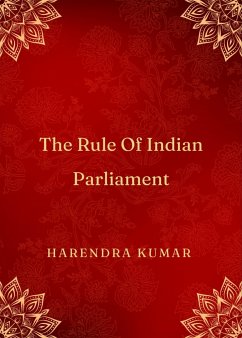The Indian Parliament is a bicameral legislature consisting of the President and two houses, the Rajya Sabha (Council of Ky) and Lok Sabha (House of the People). Although the President is not a member of either House of Representatives, he/ it is an integral part of Parliament and performs certain functions in connection with its work. Chairperson The President of the Republic is directly elected by an electorate consisting of elected members of the two Chambers of the National Assembly and elected members of the State Legislative Assembly for a term of five years and are eligible to re-elected to this position. The President is the constitutional head of state and in the exercise of all his functions, the President acting with the help and advice of the Prime Minister and the Council of Ministers, accountable to the House of Commons, i.e. Lok Sabha. Although the Speaker is a constituent part of Parliament, the Speaker does not sit or participate in discussions or in of the two Institutes. As part of the constitutional functions relating to Parliament, the President convenes and both Houses from time to time and also have the power to dissolve the Lok Sabha. At the start of the first session after each general election in the Lok Sabha and at the beginning of the first session of Parliament each year, The President addressed the members of both houses gathered in the central chamber of Parliament. The President, among others, is empowered to send a message to either House, whether it is a pending bill. Congress or whatever. Some bills can only be introduced and prosecuted on the recommendation of the President. therefore obtained. Not only that, when both chambers are not in session and the President is satisfied that circumstances exist immediate action is required, the President issues an order of equal force as a law passed by Congress. The president's consent is required for a bill passed by both houses to become law.
Dieser Download kann aus rechtlichen Gründen nur mit Rechnungsadresse in A, B, CY, D, DK, EW, E, FIN, F, GR, IRL, I, L, M, NL, P, S, SLO, SK ausgeliefert werden.









